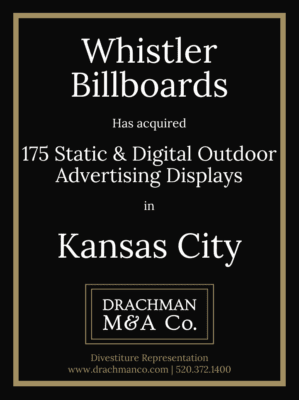 A restrictive covenant in a 97 year old right of way agreement can invalidate a billboard lease. That’s the lesson of Glorycrest Carpenter Road v Adams Outdoor. Here are the facts
A restrictive covenant in a 97 year old right of way agreement can invalidate a billboard lease. That’s the lesson of Glorycrest Carpenter Road v Adams Outdoor. Here are the facts
- In October 1927 a group of landowners conveyed a Release of Right of Way (“1927 Release”) to the State of Michigan for a 50 foot strip of land along US 23 in Michigan. The 1927 Release included this covenant: “…no bill board, sign board or advertising sign other than those advertising articles sold on the premises shall be erected, permitted or maintained in or upon the remaining lands and premises now owned by the grantor…within a distance of three hundred feet, measured at right angles from the boundary of the land conveyed.”
- In August 2011 Almer Harris, a successor to one of the landlowners who executed the 1927 Release, entered into an agreement to lease a portion of the land located within the area covered by the restricted covenant to Adams Outdoor (“Adams”) for a billboard. The sign was built and the lease commenced in June 2012. The lease had a ten year term with a 10 year extension unless one of the parties terminated the lease. The lease gave Adams a first right of refusal to purchase the property.
- In 2017 Harris agreed to sell the property to Glorycrest Carpenter Road, Inc. (“Glorycrest”) Harris’s attorney sent a letter to Adams giving it the right of first refusal to buy the property and stating “please consider this letter as notice that Mr Harris will be cancelling this lease at the earliest possible date,, and will not be renewing its term.” Adams did not excercise the right of first refusal.
- In June 2021 Glorycrest reminded Adams that the lease was cancelled and asked Adams to remove the billboard. Adams replied that the lease was extended and would run through 2032.
- Glorycrest asked the courts to cancel the lease, arguing that the lease was a result of a mutual mistake and that Adams could not rent the billboard without violating the restrictive covenant in the 1927 Release.
- In 2024 a trial court and State of Michigan Court of Appeals invalidated the lease. The courts ruled (1) Glorycrest was a successor in interest to the billboard lease and the 1927 Release. (2) That a copy of the 1927 Release of was a sufficient memorandum of the conveyance to meet the statute of frauds. (3) That the billboard lease agreement should be cancelled beause it violated the restrictive covenant in the 1927 Release.
Billboard Insider’s take: Do your research on permitted uses before entering into a billboard lease. A restrictive covenant on the use of land can come back to haunt you no matter how long ago it was signed. How might Adams have avoided this problem? Let Billboard Insider know and we’ll run a followup article.
To receive a free morning newsletter with each day’s Billboard insider articles email info@billboardinsider.com with the word “Subscribe” in the title. Our newsletter is free and we don’t sell our subscriber list.
Paid Advertisement


















Adams could have done a good title search and read the old right of way easement… not sure if anyone does this….. I doubt if the DOT permitting people go back to read a 1927 document. Note the DOT can probably rescind a permit if this issue arises.
Here a few more thoughts.
Adams could have exercised it’s right of first refusal and sold the land, reserving an easement for the board. Odds are, the net result would have been an inexpensive easement.
That doesn’t exactly address the restrictive covenant. Best guess, the issue would not have arisen if Adams had exercised its first refusal. Glorycrest was motivated to look into the property and, perhaps, had performed a thorough title search as part of its purchase due diligence.
The lease had an auto-renew clause unless either party terminated. The article does not say why the June 21 notice of non-reveal was insufficient to prevent renewal. It also does not say whether Glorycrest asserted the non-renewal, but the result illustrates an important point.
Pick your battles. Just because you can raise a defense doesn’t mean you should. You may end up with a bad precedent that will create problems in the future.